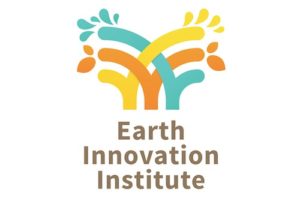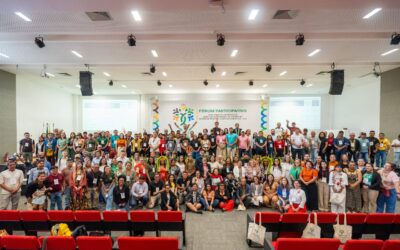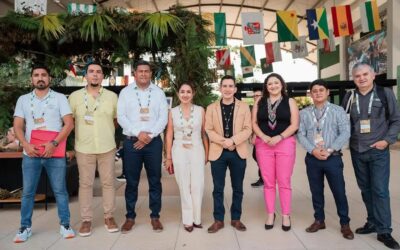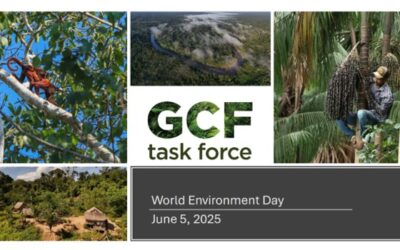Brazil
Governors and Delegates
Acre
Governor
Gladson de Lima Cameli
Delegates
Leonardo das Neves Carvalho
Secretary for the Environment & Indigenous Policy
sema.gabin@gmail.com, leomirtil@gmail.com
Jaksilande Araujo Lima
President of the Institute for Climate Change
gabinete.imc@ac.gov.br, jaksilande12@gmail.com
José Luiz Gondim dos Santos
President of the Environmental Services Development Agency
gabinete.imac@gmail.com, gondim.adv@gmail.com
Amapá
Governor
Clécio Luís
Delegates
Taisa Mara Morais Mendonça
Secretary of Environment
sema@sema.ap.gov.br
Cássio Vinícius Rodrigues de Lemos
Deputy Secretary of Environment
cassio.lemos@sema.ap.gob.br
Jaqueline Homobono
Coordinator for Climate and Environmental Services
homobonoreis@gmail.com
Amazonas
Governor
Wilson Miranda Lima
Delegates
Eduardo Taveira
Secretary of Environment
eduardo.taveira@sema.am.gov.br
Fabricia Arruda Moreira
Deputy Executive Secretary for Environmental Management
fabricia@sema.am.gov.br
Maranhão
Governor
Carlos Orleans Brandão Junior
Delegates
Pedro Chagas
Secretary of Environment and Natural Resources
gabinete@sema.ma.gov.br
Oquerlina Maria Costa Silva
Deputy Secretary of Environment and Natural Resources
oquerlina.silva@sema.ma.gov.br
Jane Cavalcante
Superintendent of Forest Resources
jane.rodrigues@sema.ma.gov.br
Mato Grosso
Governor
Mauro Mendes Ferreira
Delegates
Mauren Lazzaretti
Secretary of Environment
maurenlazzaretti@sema.mt.gov.br
Alex Sandro Marega
Executive Secretary for the Secretary of Environment
alexmarega@sema.mt.gov.br
Maurício Phillip
Climate Change Coordinator
mmphilipp@sema.mt.gov.br
Pará
Governor
Helder Barbalho
Delegates
Raul Protázio Romão
Secretary of Environment and Sustainability
gabinete@semas.pa.gov.br, raulprotazio2@gmail.com
Rodolpho Zahluth Bastos
Deputy Secretary for Environmental Management and Regularization
sagrasemaspa@gmail.com
Renata Nobre
Deputy Secretary for Management of Hydrological Resources and Climate
renatanobre.semas@gmail.com
Rondônia
Governor
Marcos Rocha
Delegates
Marco Antônio Ribeiro de Menezes Lagos
Secretary of Environmental Development
gabinete@sedam.ro.gov.br
Diogo Rosa Martins
Director of Climate Governance
mrosa.diogo@gmail.com
Roraima
Governor
Antônio Denarium
Delegates
Wagner Severo Nogueira
President of the State Foundation for the Environment and Water Resources
gabinete.femarh@gmail.com, w_snogueira@hotmail.com
Luana Tabaldi
Director of Research and Technology in Territorial Management
eng.luanatabaldi@gmail.com
Tocantins
Governor
Wanderlei Barbosa
Delegates
Marcelo Lelis
Secretary of Environment, Water Resources & Climate
gabinete@semarh.to.gov.br
Marli Teresinha dos Santos
Director of Environmental Management Instruments
marli.santos@semarh.to.gov.br
News from Brazil
Acre Completes Historic Benefits Sharing Plan
In a historic milestone, the government and representatives of indigenous peoples and traditional communities define new percentages for the distribution of benefits from the Isa Carbono program. The Governors' Climate and Forests Task Force is posting the official...
The Amazon Platform Advances in the GCF Task Force
Progress, partnerships, and a collective voice from Rio Branco, Brazil From May 19 to 23, 2025, a distinguished delegation from the Ecuadorian Amazon actively participated in the 15th Annual Meeting of the Governors' Climate and Forests Task Force (GCFTF), held in the...
Happy World Environment Day
Thanks to all our jurisdictions, communities, and partners - we look forward to continuing to work hard together to build a New Forest Economy that protects people, planet, forests, and the climate.
“We have three main axes: land regularization; command and control, which is combating fires; and the issue of stimulating agroforestry agriculture. We are working on combating fires and deforestation, but we are also presenting an alternative for our people, for those who produce and for those who work in those regions. If you protect the citizens, you protect the forest”
–Governor Wilson Lima, Amazonas
Jurisdictional Strategies & Investment Plans
Acre
Environmental Services Incentives System
Strengthening of the Acre Environmental Services Incentives System (SISA+): improvement of its programs and valuation of assets and financial sustainability of a low emission economy
The project was designed with the goal of consolidating SISA as a strategy to maintain the reduction of deforestation and increase the forest area for the continued reduction of greenhouse gas emissions in the state of Acre.
Outcomes:
- Elaboration of SISA’s Environmental Services Programs;
- Restructuring of the Company for the Development of Environmental Services (CDSA) strengthening opportunities for investments and sustainable businesses for the consolidation of productive chains and valuation of environmental assets;
- Strategies aimed at raising financial resources, such as the negotiation of Acre’s carbon credits with British Petroleum (BP) and the attraction of investments for SISA’s programs, developed by CDSA;
- Elaboration of the state plan for low carbon emission agribusinesses and the strategic business plan for fish farming in Acre;
- Updated the Acre State Produce and Protect Platform generating improved transparency of territorial performance of the state’s socio-environmental goals and promotion of Acre’s main low emission products and initiatives,
- Creation of the Center for Economic Development, Business, and Environmental Assets of Acre (CEDENA) to improve the integration of strategies between different sectors;
- Validation and recognition for women in low-carbon agricultural activities and the importance of this sector in generating income for these families.
Local Partner: Earth Innovation Institute – EII
Amapá
Forests for the Climate
Forests for the Climate: Jurisdictional System of Environmental Services and REDD+ of Amapá
The project was implemented aiming at the regulation of legal structures of policies and programs for the implementation of the Payments for Ecosystem Services (PSE) mechanisms, such as REDD+, considering socio-economic safeguards for the traditional population, rural workers and Indigenous Peoples.
Outcomes:
- Elaboration of the Jurisdictional System for Environmental Services and REDD+;
- Legal framework elaborated, agreed upon and consolidated by government and civil society;
- Socio-environmental safeguards elaborated and agreed upon in a participatory process;
- Members of the Climate Change Forum, managers, technicians, and local actors trained to act in the conception, implementation, and social control of the Jurisdictional System;
- Development of knowledge bases for implementing the Jurisdictional System;
- Dissemination of the scope of the system to different audiences.
Local Partner: Conservation International
Amazonas
Environmental Services Law
Regulation and Implementation of the Environmental Services Law of the State of Amazonas
The project developed a legal framework for the Environmental Services Law, as well as the enabling environment for the state’s REDD+ system and Payment for Ecosystem Services (PES) programs. The project has established the governance structure for operationalizing the state’s REDD+ System, including identifying key actors and processes for strengthening participation, transparency, and inclusion in PES initiatives across Amazonas.
Outcomes:
- Established Amazonas State REDD+ System structure and regulatory framework, including technical basis for quantifying the carbon stocks of forests, and a strategy for allocating the credit potential in different land categories in the Amazonas REDD+ System.
- Improved pilot REDD+ projects by improving engagement with local government and communities, and linkages to BioEconomy and other sustainable forest-based livelihoods.
- Developed case studies and best practice recommendations to inspire new business models for sustainable coffee and livestock production in southern Amazonas (Apuí) and obtained VCS certification for the Juma Reservation carbon project
- Developed a practical guide with five pillars that work to incorporate gender equality, youth, and vulnerable populations into state-wide socio-environmental public policies and projects
- Developed recommendations for socio-environmental safeguards for Amazonas’ REDD + system, based on participatory workshops with a target audience (traditional communities and Indigenous Peoples) and other local stakeholders.
Local Partner: FAS – Fundação Amazonas Sustentável
Maranhão
Valuing environmental assets in Maranhão
Valuing environmental assets in Maranhão: Jurisdictional REDD+ System
The project was implemented with the objective of building a model for a state-wide jurisdictional system for REDD+ and Payment for Environmental Services. Seeking for a feasible implementation in the medium term that results in substantial reductions in its greenhouse gas (GHG) emissions from deforestation, and at the same time offers economic incentives for rural populations to develop economic activities that are less dependent on the destruction or substitution of native vegetation.
Outcomes:
- Elaboration of the legal-institutional structures necessary for REDD+ to function;
- Identification of native vegetation assets (biodiversity, water, and carbon) by land tenure category, highlighting those vulnerable to pressures from deforestation;
- Elaboration of the financial management structure and benefit sharing mechanism;
- Development of strategy for governance and social control;
- Development of financial sustainability strategy for the Jurisdictional System;
- Elaboration of REDD+ capacity building plan;
- Identification of socio-environmental safeguards of the System and discussion with representative social actors;
- Elaboration of mechanism for monitoring and evaluation of the Jurisdictional System;
- Plan for intervention in the drivers of deforestation and conservation of native vegetation through government programs.
Local Partner: Instituto de Pesquisa Ambiental da Amazônia – IPAM
Mato Grosso
Valuing Mato Grosso Forests
The project was created with the objective of assisting the state of Mato Grosso in the consolidation of the standing forest agenda through the production of qualified information, the training of relevant actors to strengthen existing jurisdictional tools and the finalization of key processes for ongoing initiatives in the state. The project made it possible to finalize and detail the indigenous subprogram of the REDD+ for Early Movers (REM/MT) program, in addition to feeding and contributing to the strengthening of the other subprograms and establishing new funding possibilities for the maintenance of the standing forests.
Outcomes:
- Strengthening of the State REDD+ participatory governance system due to capacity building initiatives and specific indigenous leadership engagement processes with the REDD+ Steering Council and the members of the Climate Change Forum, among them: the Forest of Knowledge, the Women’s Workshop Indigenous Territories Subprogram, in addition to the support for indigenous participation in the REM;
- Assuring credibility of Mato Grosso’s climate policy through the availability of key information and the strengthening of SEMA’s team on transparency, allowing the inputs to various monitoring platforms such as the PCI monitor platform that monitors the progress of the Produce Conserve and Include (PCI) Strategy;
- Investment plans for productive activities of the Mato Grosso low carbon strategy with the identification and narrowing of potential investors, such as the mapping of Mato Grosso’s vegetation in order to guarantee speedy registration of rural properties, the socio-productive survey in Indigenous Lands eligible to receive resources from REM/MT, as well as key information about the vulnerability of farming and ranching establishments to climate change to be integrated in the state’s standing forest maintenance programs and used to raise other resources.
Local Partner: Instituto Centro de Vida – ICV
Pará
State Policy on Climate Change Law
The financing of Window A supported the development and regulation of the State Policy on Climate Change Law and its respective governance structure. The law has among its objectives making economic development compatible with the reduction of greenhouse gas emissions policies, complying with global standards of competitiveness and environmental performance, as well as ensuring the participation of indigenous, quilombolas, and traditional peoples and communities.
Outcomes:
- Drafting of State Climate Change Policy, and establishment of governance structures.
- Implementation of the State of Pará “Plano Estadual Amazônia Agora-PEAA” for socio-environmental development and deforestation reduction;
- Establishment of the Eastern Amazon Fund (EAF) as a financial instrument for forest- and climate-related actions;
- Development of a Blueprint for a state REDD+ strategy.
- Multisectoral Strategic Action Plan for the Sustainable Cattle Raising value chain in Southeastern Pará, offering the appropriate safeguards for traditional populations.
- Testing and implementation of animal traceability system;
- Definition of Priority Area for integrated actions in the State;
- Institution of government priorities for Environmental and Land Regularization for those who adhere to the Sustainable Territories
- Actions to promote gender equity within the project
Local Partner: TNC – Brazil
Rondônia
Climate Governance for Rondônia
The project was designed with the objective of supporting the elaboration and updating of jurisdictional climate and forest strategies, thus catalyzing transformative financing opportunities. It is the result of a strategic partnership between the State Secretariat for Environmental Development of Rondônia (SEDAM – RO) and the BVRio Institute, with technical support from the Institute for the Conservation and Sustainable Development of the Amazon (IDESAM)
Outcomes:
Published State Law 4.437/18, establishing the State Policy for Climate Governance and Environmental Services (PGSA);
Prepared the draft and regulation of the State Climate Change Forum (FEMC-RO). Held four meetings of the Executive Group – understood to be the “embryo” of the FEMC-RO, functioning as an articulator and catalyst of the discussions and actions of the project’s activities;
Held the REDD+ Opportunities for Rondonia and the Amazon Seminar;
Elaborated and made available an online platform for environmental products and assets – AmazoniAtiva;
Carried out four workshops on socio-environmental safeguards for Traditional Peoples and Communities;
Elaborated the draft decree for regulation of article 30 of the PGSA referring to Socio-environmental Safeguards – SES;
Drafted a decree regulating the Management Council;
Legal opinion to SEDAM on ways and alternatives for the creation of the State Fund for Climate Change foreseen in the PGSA.
Local Partner: BVRio Institute
Roraima
From Roraima to the Planet: Developing the Jurisdictional REDD+ System
The project was created with the aim of structuring the foundations for the Jurisdictional System of Payment for Environmental Services and REDD+ in the State of Roraima.
Outcomes:
Design of the legal-institutional structures necessary for the functioning of the REDD+ Jurisdictional System;
Plan for Intervention in the drivers of deforestation and conservation of native vegetation through existing government programs;
Development of financial sustainability for the Jurisdictional System;
Proposal of Strategic Governance Model of the REDD+ Jurisdictional System;
Development of Jurisdictional System monitoring and eveluation mechanism;
Local Partner: IPAM
Campo Sustentável
In order to systematize the financial analyzes referring to ILPF experiences in the State of Tocantins, the Campo Sustentável Program developed 3 fundamental products to assess the economic and financial potential of ILPF systems in the state, being:
- Detailed Business Plan for Fazenda Guará, where the first ILPF system module was established.
- Investment Simulator for ILPF: Dynamic tool that allows producers to simulate business models from different integrated production models. The producer can simulate the costs and revenues expected from the school of different agricultural and forest species, spacing between seedlings, animal capacity per hectare, etc.
- Investment Plan for ILPF in Tocantins: A detailed business plan was developed to implement 2,500 hectares of ILPF in Tocantins in the next 6 years. The investment plan presents the expenses for implementing the ILPF systems, the expected annual return from the sale of agricultural and forestry production, and also from the sale of the emission reductions (carbon credits) of the system.
The realization of the Business Plan, Investment Plan and Investment Simulator products was carried out through a partnership with “The Climate Smart Group,” a partner company in the project.
DOWNLOAD RESOURCES




